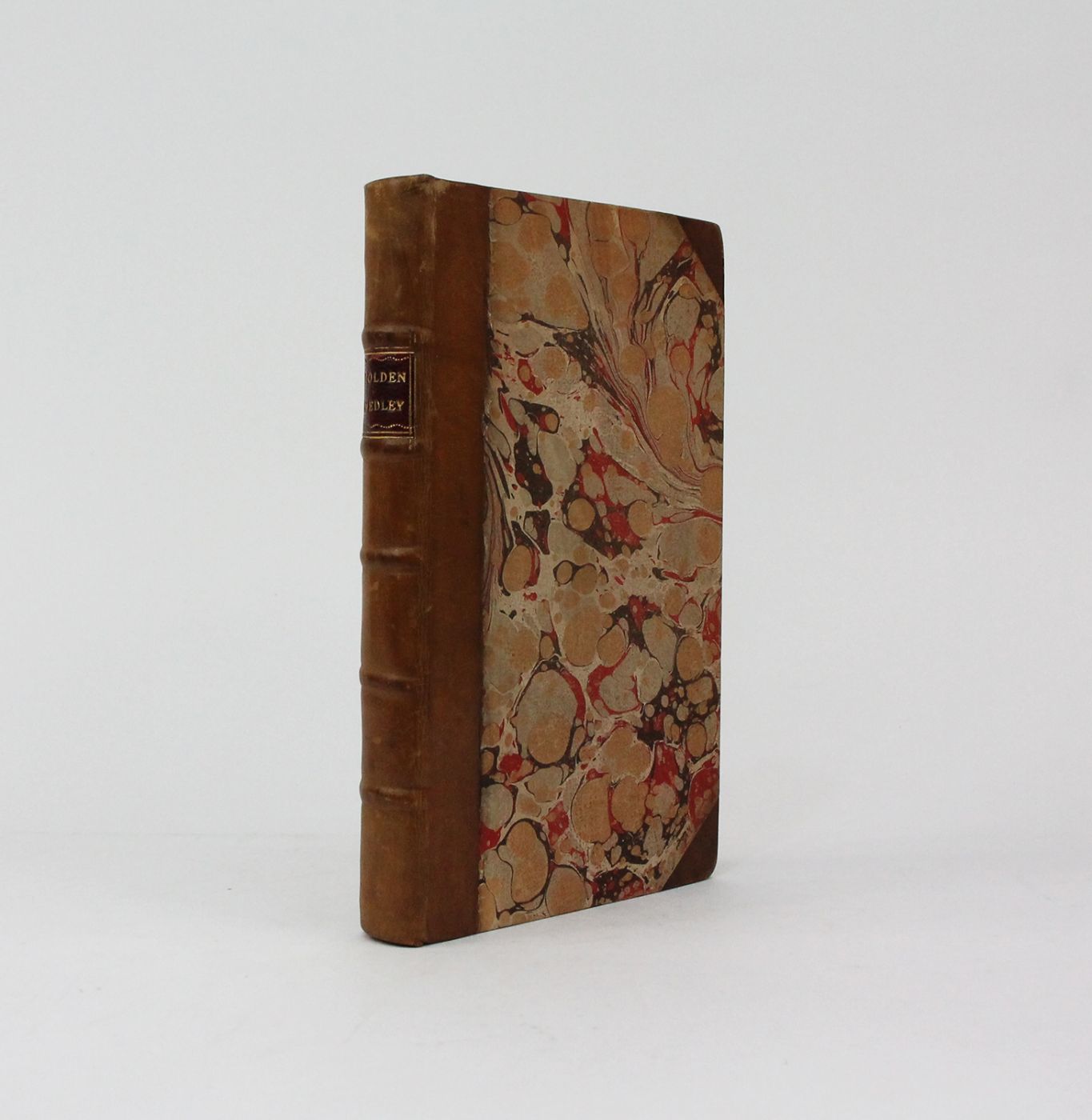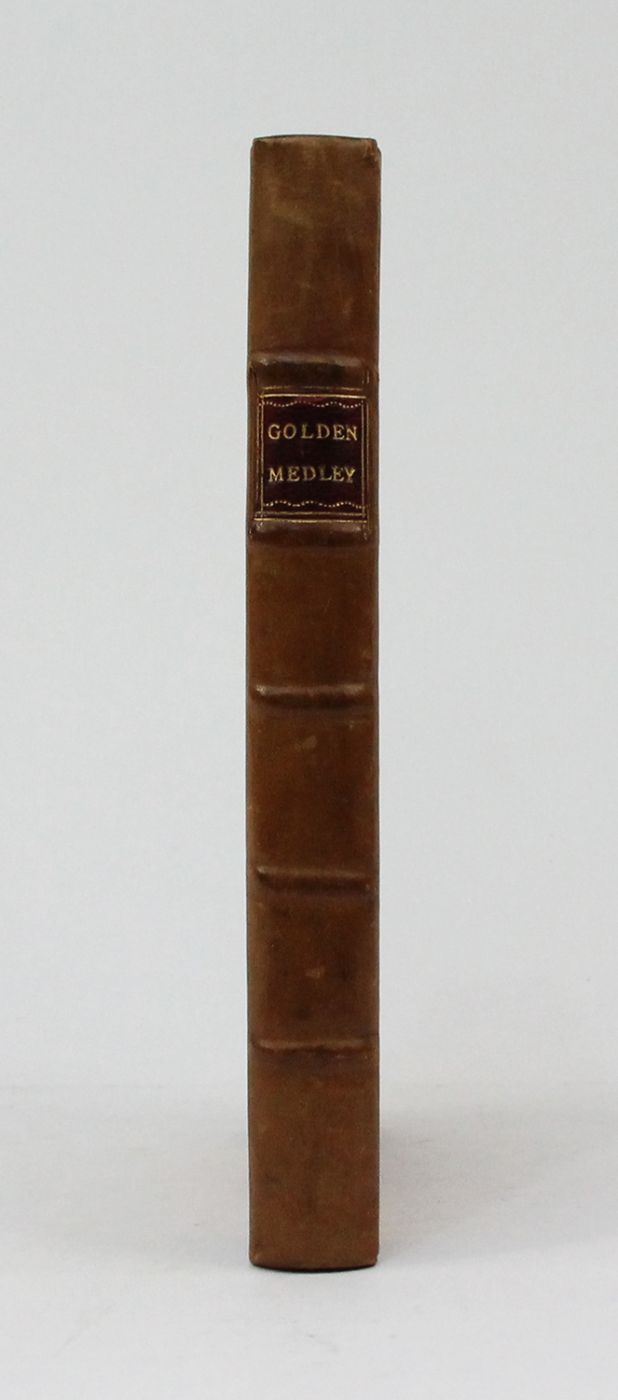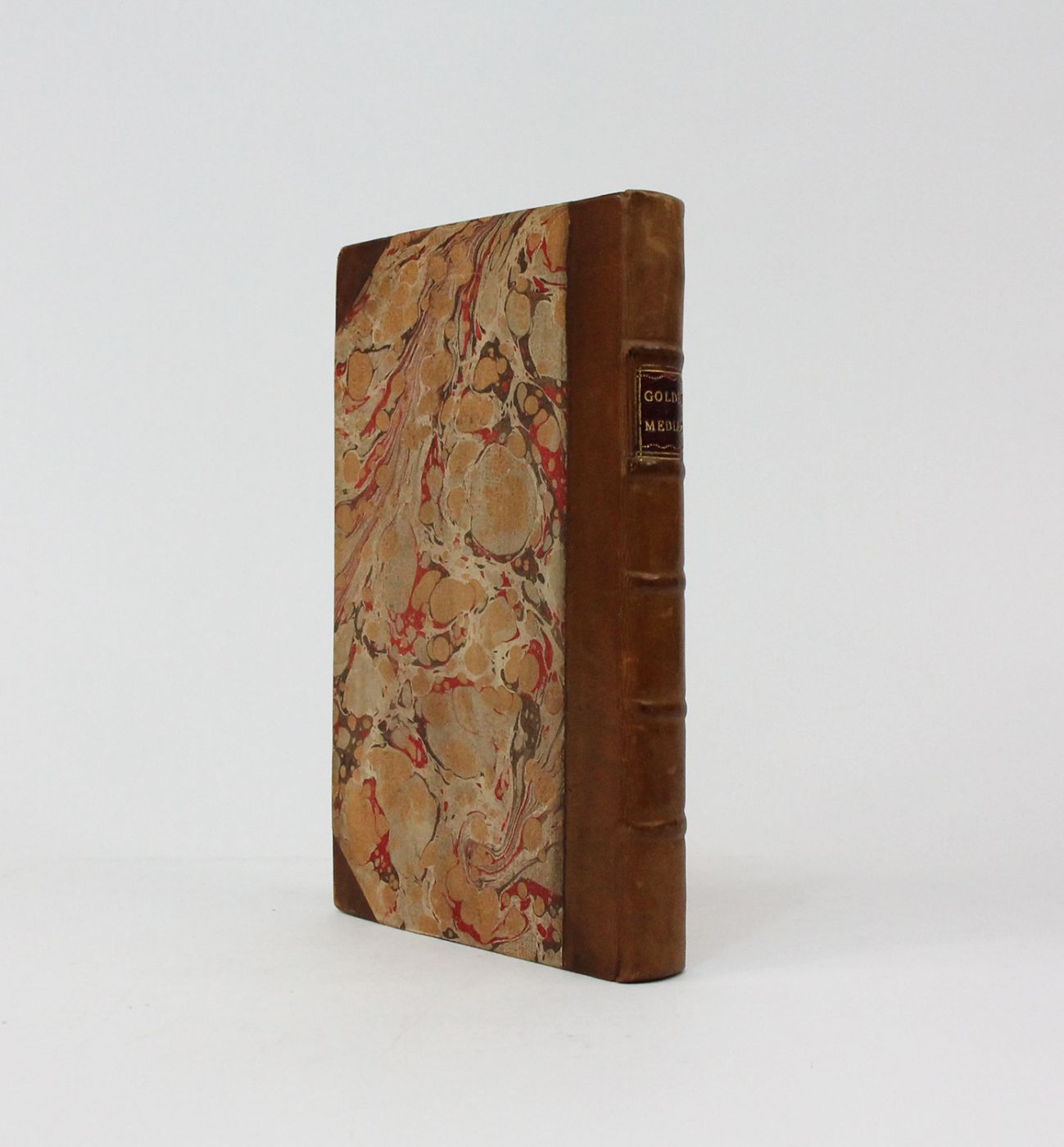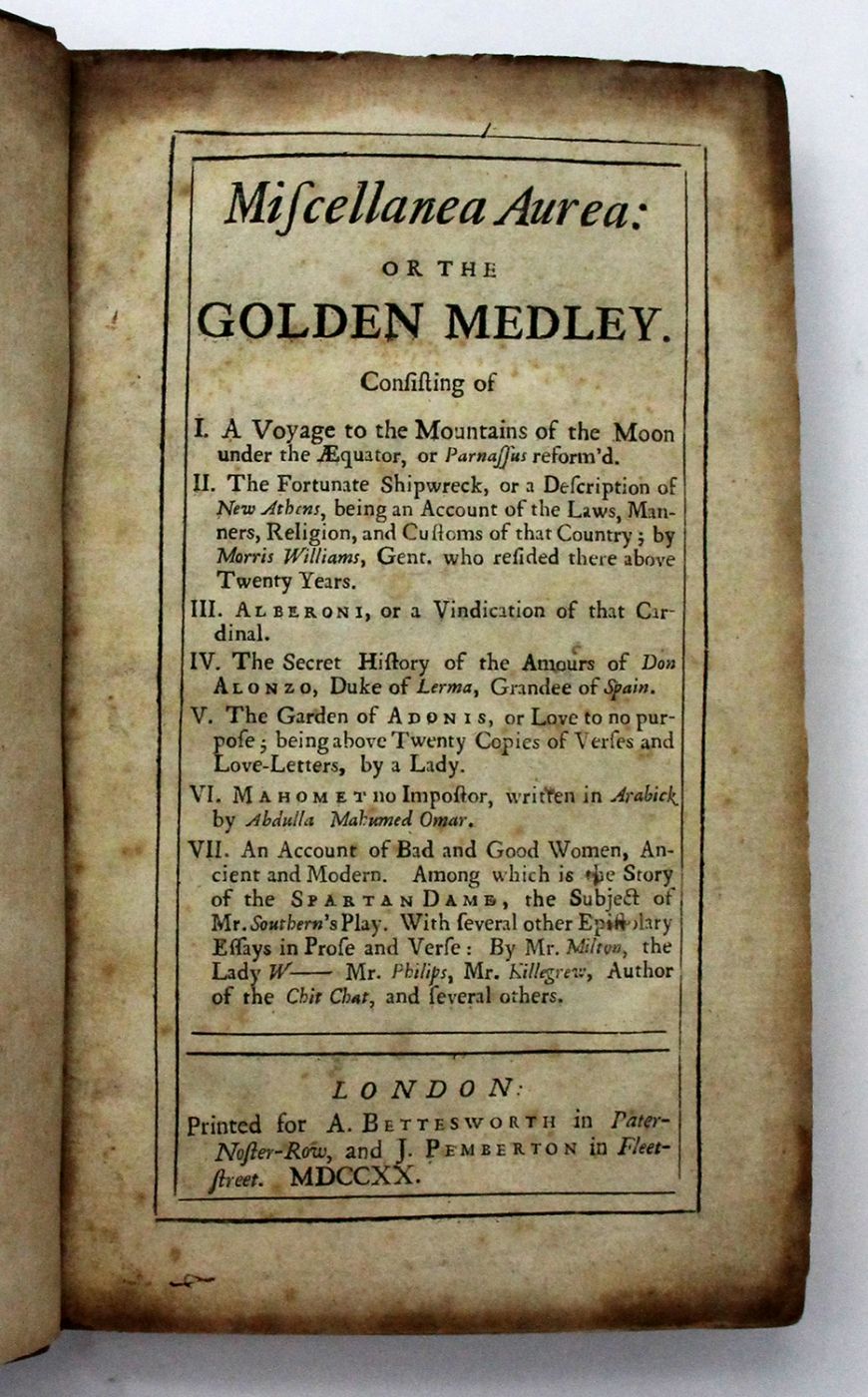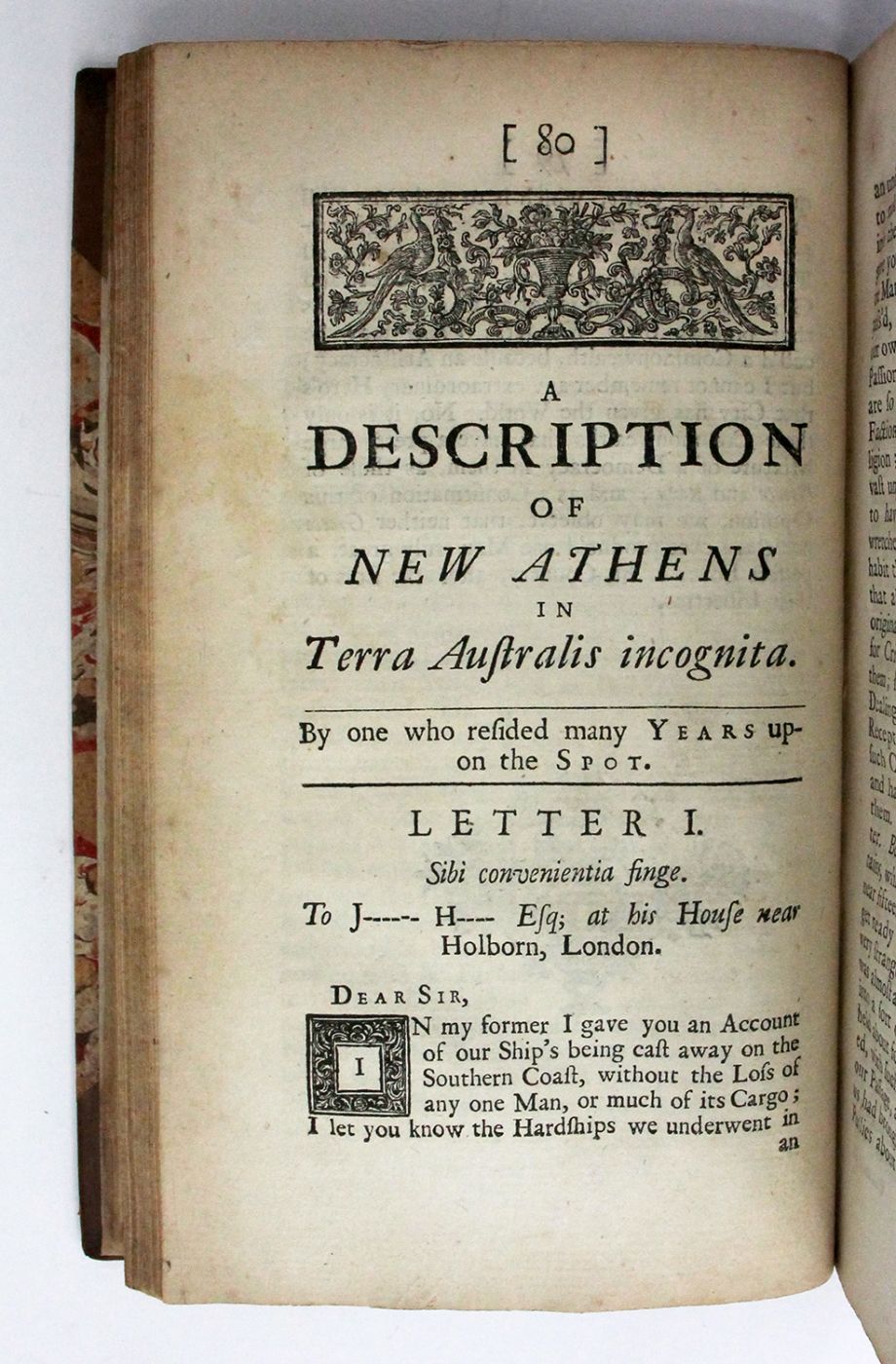MISCELLANEA AUREA: OR THE GOLDEN MEDLEY. Consisting of: I. A Voyage to the Mountains of the Moon under the ∆quator, or Parnassus reform'd. II. The Fortunate Shipwreck, or a Description of New Athens, being an Account of the Laws, Manners, Religion, and Customs of that Country; by Morris Williams, Gent. who resided there above Twenty Years [etc.]
First edition. Octavo. Twentieth-century half calf in period style over marbled boards. The spine with five raised bands and morocco title label lettered in gilt. Woodcut head- and tail-pieces and decorative initials. A very good copy, the binding square and firm. The contents with some occasional scholarly annotations in pencil to page margins, the odd minor crease to the top corner of a handful of pages, a pinprick hole to the title page, light scattered foxing and a little browning to the margins of the preliminary pages are otherwise in very good order.
The first edition of this collection of stories and essays, most notable for its inclusion of an important early Australian imaginary voyage - "The Fortunate Shipwreck, or a Description of New Athens" - a castaway narrative detailing the discovery of a utopian society on the southern coast of the Terra Australis, published just one year after Defoe's Robinson Crusoe. Taking the form of a series of letters, the work traces the experiences of the fictional English adventurer Maurice Williams after his chance arrival on the Australian continent following a shipwreck. Once ashore, he discovers a utopian society founded by ancient Greeks, who had themselves travelled for three years across desert and ocean in order to realise their "New Athens" in "Terra Australis incognita" (Country of the South). As Williams explains, after their arrival, the Greeks had peacefully integrated with the original inhabitants (those who "may properly be call'd the Aborigines of the place") and established a new society free from the manifold follies of contemporary Europe. In the tradition of utopian literature, as established by Thomas More's seminal 1516 work, Williams describes in detail the architecture and administration of the great Greek-Australian city, its politics and laws and the customs and manners of its inhabitants. He then goes on to discuss the way in which he and his companions introduce the New Athenians to English poetry, the art of printing, the manufacture of gunpowder and the construction of war ships, apparently to the great benefit of the latter. In addition to its early Australian setting, the narrative also notably contains the first reference to the American territory of "Carolina" in fiction, as Williams, after having been caught in yet another violent storm on his return from New Athens, finds himself "very well pleas'd" to be able to get ashore on Carolina's cost, knowing that he was "pretty secure of finding a passage to Old England". The main contributor to the collection was the dramatist Thomas Killigrew the younger (1657-1719), although Charles Gildon, recorded by CBEL as the editor, may be the author of the second imaginary voyage. Chief amongst the work's other contents are: "A Voyage to the Mountains of the Moon under the ∆quator", "Mahomet no Imposter, written in Arabick by Abdulla Mahumed Omar" (a defence of Islam purportedly written by a Muslim), "Alberoni, or a Vindication of that Cardinal", "The Secret History of the Amours of Don Alonzo", "The Garden of Adonis" and "An Account of Bad and Good Women, Ancient and Modern". Scarce in commerce. [Grove, Imaginary Voyages, p.234; ESTC T117537].
Stock code: 20219
£2,250
Published:
Category
Science Fiction / FantasyAdventure / Thriller
Literature
Politics / Philosophy
Religion
Travel / Exploration


